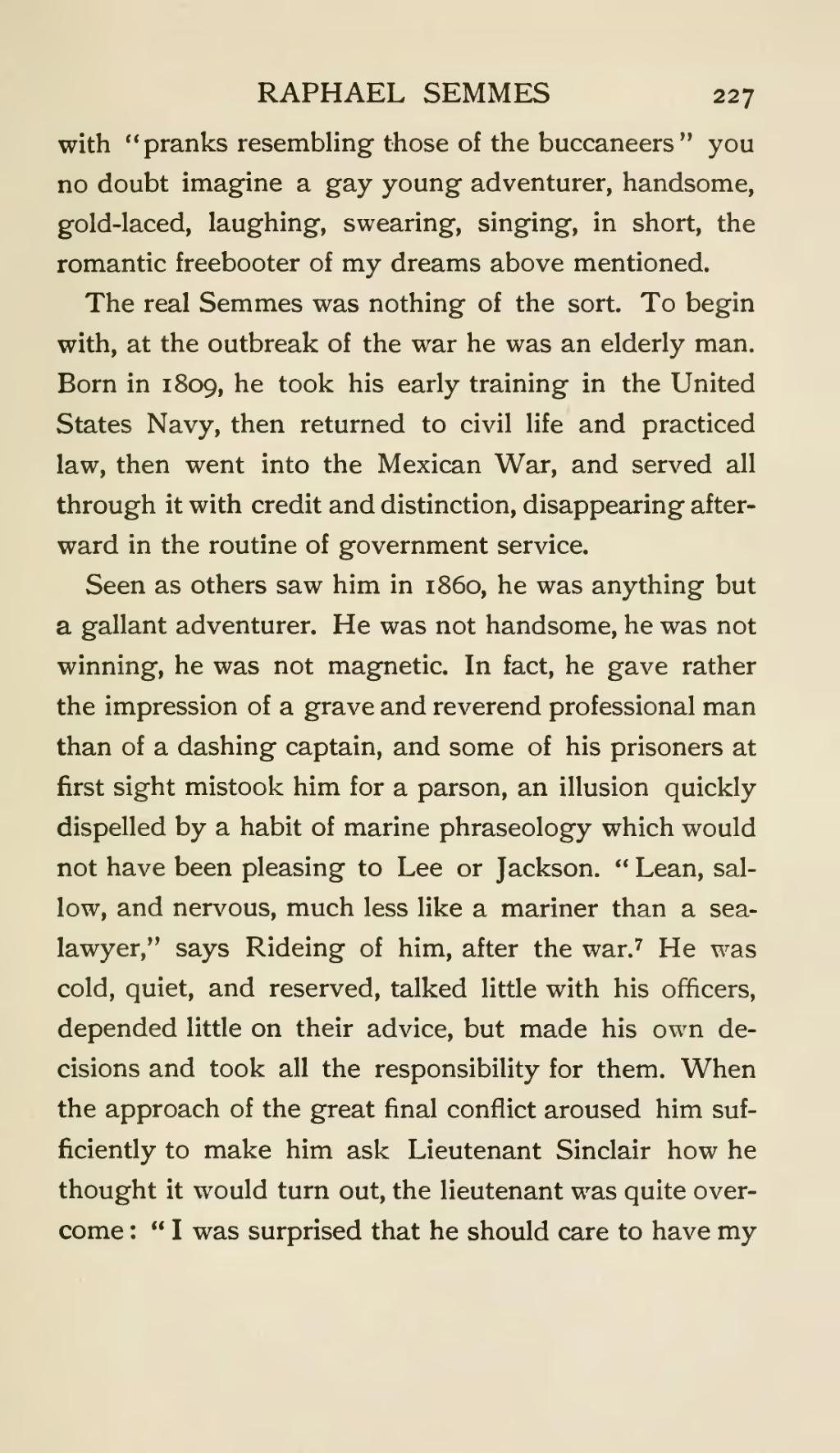with "pranks resembling those of the buccaneers" you no doubt imagine a gay young adventurer, handsome, gold-laced, laughing, swearing, singing, in short, the romantic freebooter of my dreams above mentioned.
The real Semmes was nothing of the sort. To begin with, at the outbreak of the war he was an elderly man. Born in 1809, he took his early training in the United States Navy, then returned to civil life and practiced law, then went into the Mexican War, and served all through it with credit and distinction, disappearing afterward in the routine of government service.
Seen as others saw him in "860, he was anything but a gallant adventurer. He was not handsome, he was not winning, he was not magnetic. In fact, he gave rather the impression of a grave and reverend professional man than of a dashing captain, and some of his prisoners at first sight mistook him for a parson, an illusion quickly dispelled by a habit of marine phraseology which would not have been pleasing to Lee or Jackson. "Lean, sallow, and nervous, much less like a mariner than a sea-lawyer," says Rideing of him, after the war.7 He was cold, quiet, and reserved, talked little with his officers, depended little on their advice, but made his own decisions and took all the responsibility for them. When the approach of the great final conflict aroused him sufficiently to make him ask Lieutenant Sinclair how he thought it would turn out, the lieutenant was quite overcome: " I was surprised that he should care to have my
